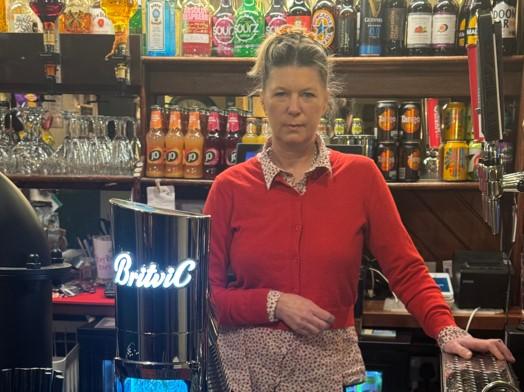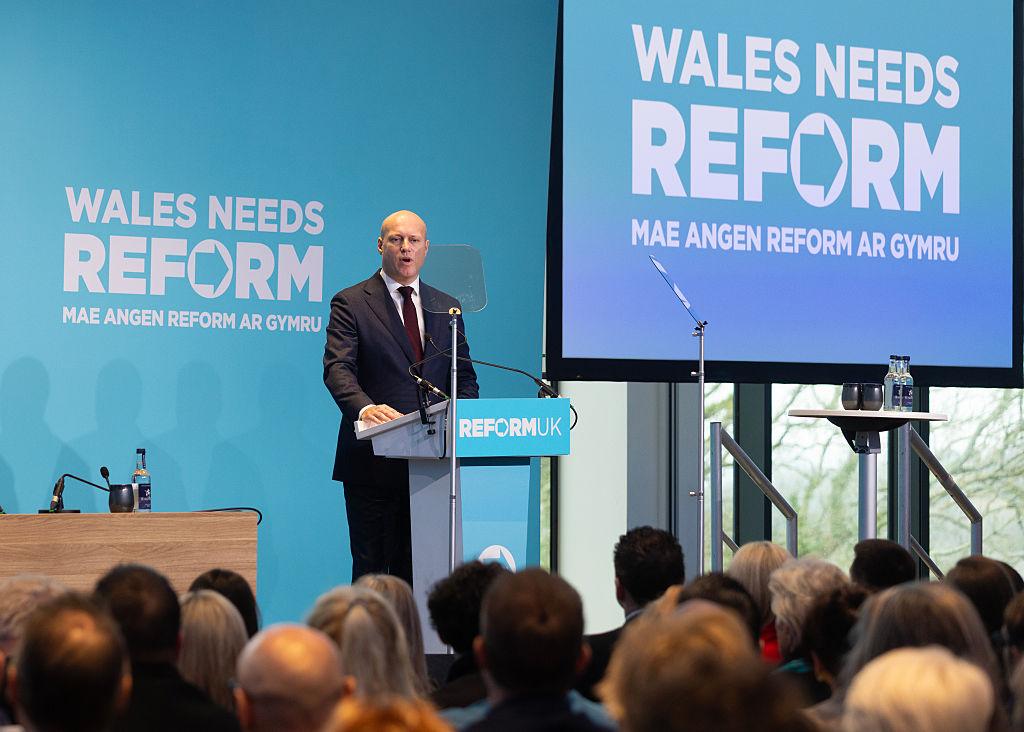News
Welsh Government scraps council mergers


THERE has been a widespread welcome and cautious approval of the announcement by Welsh Local Government Cabinet Secretary Professor Mark Drakeford that the Welsh Government has scrapped its controversial plans to force councils into mergers.
The decision is an embarrassing U-Turn by the government and a recognition that, not only was there little or no support for its scheme – described as ‘grandiose’ by former AM William Powell – among Welsh local government, but no enthusiasm for its plans in the Assembly.
Former local Government Leighton Andrews’ spectacularly maladroit words at the end of the last Assembly, when he described Plaid’s preparedness to work with the Welsh Government as making them ‘a cheap date’, not only soured relationships enough to cause other legislation to fall, but poisoned what little goodwill existed for the proposals to merge councils under any circumstances.
Professor Drakeford’s announcement follows long-running guerrilla warfare by local authorities resistant to the change and what is understood to be direct pressure brought to bear on the Welsh Government by Labour Party controlled councils in the south east of Wales, who faced losing their autonomy under the scheme.
LOCAL COUNCILS RESPOND POSITIVELY
Cllr Jamie Adams, Leader of Pembrokeshire County Council, and who was implacably opposed to the merger scheme proposed by former minister Leighton Andrews, said: “I welcome the certainty provided by Mark Drakeford. There is no question that the recent period of uncertainty has had a negative effect on the running of all local authorities.
“I will take the opportunity to engage in shaping sustainable services for the people of Pembrokeshire and ensuring that they are underpinned by local democratic accountability.
He added: “We look forward to the opportunity of building on the excellent services provided by Pembrokeshire County Council for the people of Pembrokeshire, as evidenced recently by the Local Government Performance report for Wales 2015-16.”
Cllr Adams’ words were echoed by Ceredigion leader Ellin ap Gwynn, who told us: “I welcome the change in direction by the Welsh Government, and the new Cabinet Secretary’s appreciation of the importance of local decision making and accountability.
“Ceredigion is an historic county steeped in tradition, and I am very pleased that Ceredigion residents will be able to continue to fully engage in democratic processes at this local level.
“Ceredigion County Council is no stranger to working in partnership with other authorities at a regional level, wherever such a model may enhance our ability to respond to the needs of our residents.
“I and my fellow Members will look forward to working with the Welsh Government to further discuss the implications and opportunities of broader collaborative working, and to play a full role in determining the most effective model possible for the county.”
Cllr Emlyn Dole, Leader of Carmarthenshire County Council, has welcomed the statement by Local Government Secretary, Professor Mark Drakeford, confirming that compulsory council mergers are off the table, with more emphasis added to regional partnership agreements.
“I very much welcome the statement by the Minister. He called with us at the beginning of the summer to engage in the conversation – he was open to listening and so were we,” said Cllr Dole.
“We welcome the fact that the 22 local authorities stay and keep their roles, but with emphasis on regionalisation for the delivery of certain services.
“In Carmarthenshire, we have already forged very strong and successful partnerships across the region to deliver a variety of services, and for us, we go where the strength is – what works best for Carmarthenshire in terms of stronger and better services.”
NO RETURN TO DYFED
West Wales’ councils and councillors had been staunch in their opposition to the scheme advanced during the last Welsh Assembly term, which was widely regarded as a power-grab by the Cardiff Bay government.
Ceredigion Council refused to enter even into preliminary talks on any potential merger; Pembrokeshire Council were united in rejecting reorganisation on the terms dictated by former minister Leighton Andrews and Carmarthenshire County Council was similarly unanimous in its opposition to the scheme.
The prospect of forced mergers and what amounted to the recreation of the hated Dyfed County Council, but without the former district council tier underneath, was not only a major sticking, but the focus of councillors’ and local AMs’ opposition to the plans, which increasingly seemed as though they were being made to serve the interests of Cardiff Bay by stripping out democratic accountability from local government.
Responding to the announcement, Councillor Bob Wellington CBE (Torfaen), Leader of the WLGA, said: “As a statement of intent we welcome these proposals and also the constructive way in which the Cabinet Secretary is working with local councils to develop a more resilient and stable future for local public services in Wales.
“Our ideas for future service innovation chime well with the proposals outlined by the Cabinet Secretary.
“What is encouraging is that these proposals highlight how councils will remain embedded in their communities, acting as the ‘front door’ through which people access a range of vitally important everyday services. In doing so, the proposals outline a vision that keeps the ‘local’ in local democracy and local government, while also offering a coherent agenda for regional collaboration on key service areas.
“There is much detail now to explore, not least on how the proposed ‘mandatory’ approach to regional working will work, but we look forward to working with the Cabinet Secretary and our other partners to ensure we deliver a workable vision for public service reform in Wales.”
DRAKEFORD’S NEW PLAN
Professor Drakeford told AMs that he had listened to the views of local authorities and trade unions and had found ‘an approach on a possible way forward’.
The new plan means retaining existing local authorities as the ‘front door’, through which people access services, but with key services being delivered regionally.
The Cabinet Secretary explained: “Behind this front door, we would have an enhanced level of mandatory and systematic regional working. This will give local authorities more resilience in terms of staffing and finance and also ensure that services are planned and delivered on the right scale.”
However, mergers were not ruled out altogether, with Professor Drakeford saying: “Some authorities may wish to build their resilience further by voluntarily merging and we will support them to help make that happen.”
Tackling a major sticking point with the previous plans regarding Community Councils, he said: “We will also make improvements to Community Councils in the short term, and establish an independent review to look at the future role of this tier of local Government.”
Responding, Labour Regional Assembly Member Eluned Morgan told The Herald: “I think it’s sensible that local authorities work together more to deliver key services.
“There’s less and less money available because of Westminster Government decisions on spending. This is likely to get even tougher with the decision to leave the EU. There are many examples of good practice in local authorities and more formal sharing arrangements can only help.”
Business
Tenby pub toasting 150 years at the heart of community life

A LONG-ESTABLISHED village pub in Tenby is preparing to mark a major milestone this year, with celebrations planned to honour more than a century and a half of pulling pints and bringing people together.
The Evergreen Inn is believed to date back to the 1860s, opening its doors at a time when the railway was transforming the coastline. Local tradition says the pub first served labourers working on the nearby viaduct, offering ale and shelter to navvies who were too far from town to make the journey for refreshments.

More than 150 years later, little has changed in spirit.
Today, the Evergreen remains firmly rooted in everyday community life, with regulars forming the backbone of trade and a steady mix of families, walkers and holidaymakers passing through its doors.
Manager Mel Sanders said the pub’s strength lies in familiarity and welcome.
“We’re very much a locals’ pub,” she explained. “Most people who come in know each other. It’s somewhere you can pop in for one drink and end up staying the evening.”
Recent years have seen a revival in fortunes, with themed nights, quizzes and live music drawing crowds back through the doors. Charity fundraising has also become a big part of the calendar, with thousands of pounds raised for health and animal welfare causes.

A popular fixture is live piano and singalong sessions hosted by a well-known regular, helping support lifeboat crews and other good causes.
The pub’s offer goes beyond the bar. Darts teams, card games and acoustic evenings fill the week, while dogs and children are equally welcome, reinforcing its reputation as a proper, old-fashioned local.
Owners Paul and Kat have also given the interior a gentle refresh, nodding to the building’s railway roots with period touches, warm wood finishes and a cosy stove for winter nights.
Despite rising costs across the trade, the Evergreen has kept prices competitive and introduced a loyalty scheme to reward those who treat it as a second home.

With anniversary events planned over the coming months, staff say the focus will be less about looking back and more about keeping the tradition alive.
After all, for generations of Tenby residents, it hasn’t just been a pub – it’s been the village’s living room.
Local Government
Work begins on Tŷ Haverfordia sheltered housing and reablement centre

CONSTRUCTION work has begun on a new sheltered housing and reablement development at the former Haverfordia House site in Haverfordwest.
Pembrokeshire County Council says the scheme will deliver twenty-six affordable apartments for residents aged fifty-five and over, alongside a twelve-bed reablement centre designed to help people regain independence after leaving hospital.
The project, known as Tŷ Haverfordia, is being built by Wynne Construction and forms part of the council’s wider plan to expand accessible housing and modernise health and social care provision across the county.
Initial works began on Monday (Jan 26) and include securing the site, installing temporary offices and welfare units, and setting up a contractor compound and parking area.
Pedestrian routes to nearby facilities, including the GP surgery and leisure centre, will remain open throughout the build.
A limited number of public parking spaces, including disabled bays, have been retained, with pay and display machines relocated to reduce disruption.
Rifleman Field impact minimised
To accommodate site facilities, a small section of Rifleman Field is being used temporarily.
The area has been fenced off and the footprint kept as small as possible. The council says any affected land will be fully restored once construction is complete.
Residents will have the chance to learn more about the plans at a community drop-in session on Thursday (Feb 19) from 5:00pm to 7:00pm at The Green Room in Haverfordwest Leisure Centre.
Housing officers and project representatives will be available to answer questions and gather feedback.
Cabinet Member for Housing, Cllr Michelle Bateman said the start of works marked an important milestone.
She said: “I am pleased that we have finally reached the stage of commencing on site and look forward to seeing the development progressing.
“We have been able to move forward after receiving much-needed Welsh Government grant assistance for both the housing and reablement elements of the scheme.
.
News
Reform rejects questions over new Welsh Leader Dan Thomas’ residency

Party insists he lives in Wales despite owning home across the border
REFORM UK has confirmed that its newly appointed Welsh leader Dan Thomas owns a house in the English city of Bath, but maintains he is currently living in Wales with his family.
The row follows reporting by Nation.Cymru, which questioned whether Mr Thomas had relocated to Wales as claimed when he was unveiled as the party’s figurehead ahead of the next Senedd Cymru election.
Mr Thomas was introduced to supporters at a rally in Newport by Nigel Farage, leader of Reform UK, who said the former London Conservative council leader had “returned to his roots” in the Valleys to raise his young family.
Mr Thomas has also publicly stated that he lives in Wales.
However, the Welsh news site reported that he had sold his London home and told former colleagues he was moving to the Bath area for work and to be closer to family.
Following publication of the story, a Reform UK press officer contacted the outlet insisting: “Dan lives in Wales. Any claim to the contrary is entirely false. He lives here in Wales, where he is raising his young family.”
When pressed further, the party acknowledged that Mr Thomas owns property in Bath, but said it is rented out and not his main residence.
The clarification prompted a series of additional questions from journalists, including when the Bath property was purchased, whether he ever lived there, and why it was bought if the intention had always been to relocate to Wales.
They also sought confirmation of where Mr Thomas is registered to vote and the circumstances around his appointment as Reform UK’s Welsh leader.
According to the publication, those questions were not answered directly. Reform UK instead repeated that Mr Thomas “lives here in Wales with his wife and children” and called for the original article to be removed.
In a subsequent video statement, Mr Thomas described the coverage as a “smear”, saying political opponents were “rattled” and inviting “credible, trustworthy journalists” to visit him for “a cup of tea” to prove he lives in Wales.
The issue matters because candidates seeking election to the Senedd are expected to demonstrate a clear residential link to Wales.
Reform UK has not provided further detail about Mr Thomas’s living arrangements.
This article is based on reporting first published by Martin Shipton at Nation.Cymru and is rewritten with attribution.
-

 Crime3 days ago
Crime3 days agoSex offender jailed after living off grid in Pembrokeshire and refusing to register
-

 Health2 days ago
Health2 days agoHealth board targets rise in steroid and gym drug use across west Wales
-

 News4 days ago
News4 days agoPrincess of Wales visits historic Pembrokeshire woollen mill
-

 Health6 days ago
Health6 days agoDoctor struck off after sexual misconduct findings at Withybush Hospital
-

 Crime2 days ago
Crime2 days agoTeacher injured and teenager arrested for attempted murder at Milford Haven School
-

 Crime4 days ago
Crime4 days agoHakin man’s appeal delayed again as Crown Court seeks guidance on insurance law
-

 News6 days ago
News6 days agoHerald journalists to feature in true-crime documentary on local lockdown murder
-

 Crime5 days ago
Crime5 days agoArrest made after Carmarthen park stabbing investigation


























